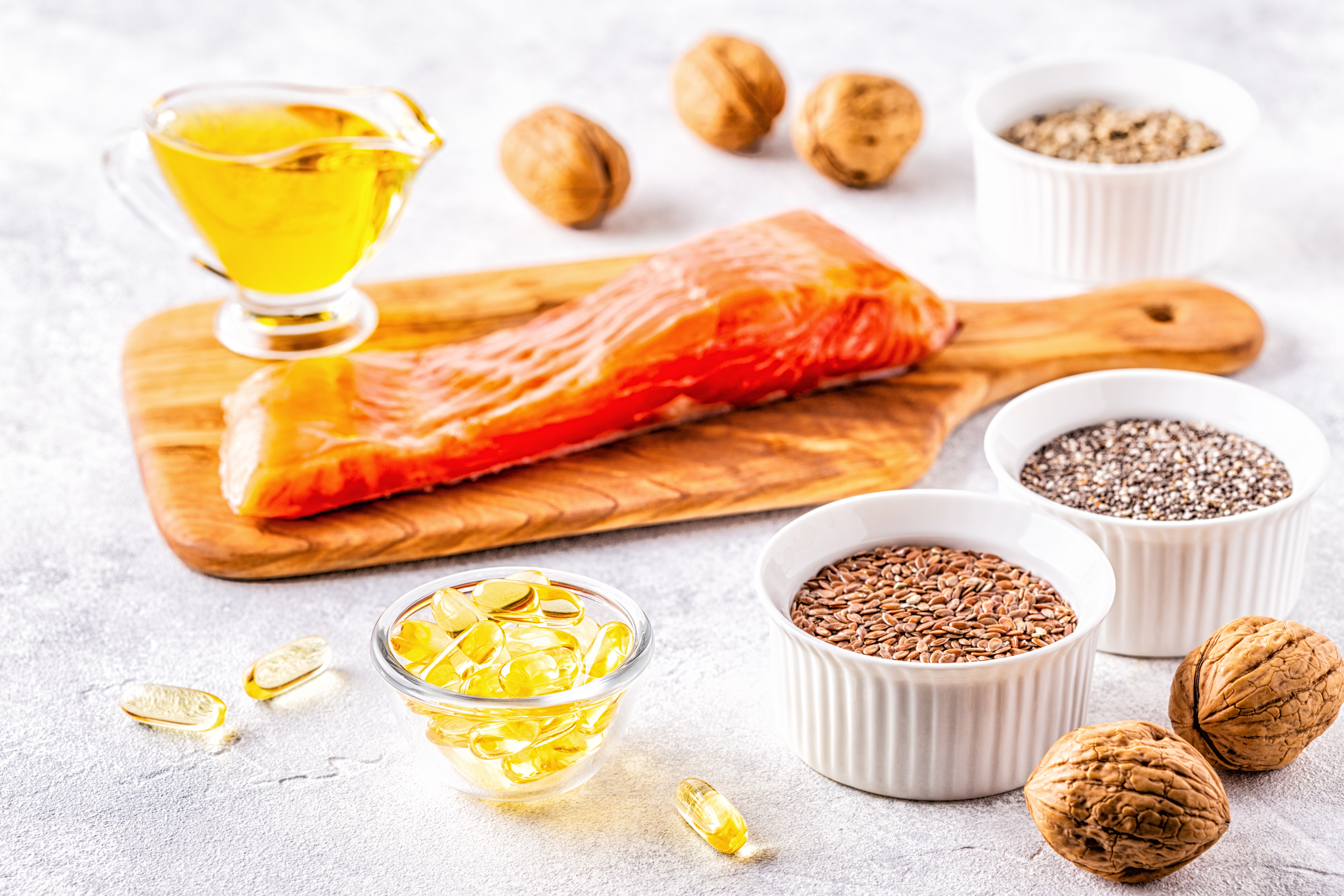12 Simple Daily Habits to Naturally Lower Your Blood Pressure
In the grand symphony of life, our bodies play a complex and beautiful tune, with each system contributing to the harmony of our well-being. Among the most crucial aspects of this symphony is the regulation of blood pressure, a vital indicator of overall health. High blood pressure, or hypertension, is a silent condition that can lead to serious health issues, including heart disease and stroke. Yet, maintaining balanced blood pressure doesn't have to be a daunting task. By embracing a rhythm of well-being through simple daily habits, you can naturally keep your blood pressure in check and enhance your quality of life. This article explores 12 such habits, each a note in the melody of health, that can help you achieve this balance. From dietary choices to mindfulness practices, these habits are easy to incorporate into your daily routine. Join us as we delve into each habit, uncovering the science behind them and offering practical tips for implementation. Together, let's embrace the rhythm of well-being and maintain the harmony of our health.
1. The Power of Hydration

Water is the essence of life, and staying adequately hydrated is crucial for maintaining balanced blood pressure. When the body is well-hydrated, the heart can pump blood more efficiently, reducing the strain on blood vessels. Dehydration, on the other hand, can lead to an increase in blood viscosity, making it harder for the heart to circulate blood, which can elevate blood pressure. To harness the power of hydration, aim to drink at least eight glasses of water a day. This not only helps in maintaining blood pressure but also supports overall bodily functions, including digestion and temperature regulation. Incorporating water-rich foods like cucumbers, watermelon, and oranges into your diet can also contribute to your daily hydration needs. Additionally, starting your day with a glass of water and keeping a water bottle handy can serve as gentle reminders to stay hydrated throughout the day. Remember, the quality of water matters too. Opt for filtered water to avoid contaminants that could potentially affect your health. By prioritizing hydration, you're not only supporting your cardiovascular system but also fostering a habit that enhances your entire well-being.
2. Mindful Eating: A Nutritional Symphony

Mindful eating is more than just a dietary choice; it's a holistic approach to consuming food that can significantly impact your blood pressure. By paying attention to what you eat and savoring each bite, you can make healthier food choices that naturally support blood pressure balance. Start by incorporating foods rich in potassium, magnesium, and calcium, such as leafy greens, nuts, seeds, and fish, which are known to help lower blood pressure. These nutrients work synergistically to relax blood vessels, improve blood flow, and reduce the risk of hypertension. Practicing portion control is another aspect of mindful eating that can prevent overeating and weight gain, both of which are risk factors for high blood pressure. By eating slowly and without distractions, you can better tune into your body's hunger and fullness cues. This practice not only aids in digestion but also allows you to enjoy your meals more fully. Furthermore, reducing sodium intake is essential, as excess salt can lead to water retention and increased blood pressure. Opt for herbs and spices to flavor your meals instead of salt. Embrace the art of mindful eating, and you'll find that it not only supports balanced blood pressure but also enhances your overall relationship with food.
3. The Role of Regular Physical Activity

Physical activity is a cornerstone of maintaining balanced blood pressure and overall cardiovascular health. Engaging in regular exercise strengthens the heart, enabling it to pump blood more efficiently, which can lower the pressure on arteries. Aim for at least 150 minutes of moderate aerobic exercise, such as brisk walking, cycling, or swimming, each week. These activities not only help in reducing systolic and diastolic blood pressure but also improve mood, energy levels, and sleep quality. Incorporating strength training exercises, such as weightlifting or resistance band workouts, at least twice a week can further enhance your cardiovascular health. These exercises improve muscle mass and metabolism, which can aid in weight management—a key factor in controlling blood pressure. Additionally, integrating flexibility and balance exercises, such as yoga or tai chi, can reduce stress and promote relaxation, further supporting blood pressure regulation. Remember, consistency is key. Find activities you enjoy, and make them a regular part of your routine. By embracing an active lifestyle, you're not only nurturing your heart but also fostering a sense of vitality and well-being.
4. Stress Management: Finding Inner Harmony

Stress is an inevitable part of life, but chronic stress can take a toll on your blood pressure and overall health. When you're stressed, your body releases hormones like adrenaline and cortisol, which temporarily increase blood pressure by causing your heart to beat faster and your blood vessels to narrow. To maintain balanced blood pressure, it's essential to find effective ways to manage stress and cultivate inner harmony. Mindfulness practices, such as meditation and deep breathing exercises, can help calm the mind and reduce stress levels. Engaging in activities that bring joy and relaxation, such as reading, listening to music, or spending time in nature, can also help alleviate stress. Creating a consistent daily routine that includes time for self-care and relaxation can further support stress management. Additionally, fostering strong social connections and seeking support from friends and family can provide a buffer against stress. By prioritizing stress management, you're not only protecting your cardiovascular health but also enhancing your overall quality of life. Embrace the journey of finding inner harmony, and you'll discover a profound impact on your well-being.
5. Sleep: The Restorative Rhythm

Sleep is a vital component of maintaining balanced blood pressure and overall health. During sleep, your body undergoes essential restorative processes, including the regulation of stress hormones and blood pressure. Poor sleep quality or insufficient sleep can lead to elevated blood pressure and increase the risk of cardiovascular disease. Aim for seven to nine hours of quality sleep each night to support your body's natural rhythms and maintain optimal health. Establishing a consistent sleep schedule, even on weekends, can help regulate your body's internal clock and improve sleep quality. Creating a relaxing bedtime routine, such as reading or taking a warm bath, can signal to your body that it's time to wind down. Additionally, creating a sleep-friendly environment by keeping your bedroom dark, cool, and quiet can further enhance sleep quality. Avoiding caffeine and electronic devices close to bedtime can also promote better sleep. By prioritizing restorative sleep, you're supporting your body's ability to regulate blood pressure and fostering a foundation of well-being that permeates every aspect of your life.
6. The Impact of Alcohol and Tobacco

Alcohol and tobacco use are significant risk factors for high blood pressure and cardiovascular disease. While moderate alcohol consumption may have some cardiovascular benefits, excessive drinking can lead to elevated blood pressure and other health issues. If you choose to drink, do so in moderation—up to one drink per day for women and two drinks per day for men. Being mindful of your alcohol intake can help maintain balanced blood pressure and support overall health. Tobacco use, on the other hand, has no safe level and poses a significant threat to cardiovascular health. Smoking damages blood vessels, reduces oxygen in the blood, and increases heart rate and blood pressure. Quitting smoking is one of the most impactful steps you can take to improve your cardiovascular health and reduce the risk of hypertension. If you're a smoker, seek support from healthcare professionals, support groups, or smoking cessation programs to help you quit. By reducing or eliminating alcohol and tobacco use, you're taking proactive steps to protect your heart and enhance your overall well-being.
7. Embracing a Plant-Based Diet

A plant-based diet rich in fruits, vegetables, whole grains, nuts, and seeds can play a pivotal role in maintaining balanced blood pressure. These foods are naturally low in sodium and high in essential nutrients like potassium, magnesium, and fiber, which support cardiovascular health. The antioxidants found in plant-based foods also help reduce inflammation and oxidative stress, both of which can contribute to hypertension. Incorporating more plant-based meals into your diet can be as simple as adding a variety of colorful vegetables to your plate or choosing plant-based protein sources like beans, lentils, or tofu. Experimenting with new recipes and flavors can make the transition enjoyable and sustainable. Moreover, reducing the consumption of processed foods and red meat can further support blood pressure balance. Embrace the abundance of nature's bounty, and you'll find that a plant-based diet not only supports your cardiovascular health but also nourishes your body with vitality and energy.
8. The Benefits of Omega-3 Fatty Acids

Omega-3 fatty acids are essential fats that offer numerous health benefits, including supporting balanced blood pressure. These healthy fats are found in fatty fish like salmon, mackerel, and sardines, as well as in plant sources like flaxseeds, chia seeds, and walnuts. Omega-3s help reduce inflammation, improve blood vessel function, and lower triglyceride levels, all of which contribute to cardiovascular health. Incorporating omega-3-rich foods into your diet can be as simple as enjoying a serving of fatty fish a couple of times a week or adding a tablespoon of flaxseeds to your morning smoothie. If you're not a fan of fish, consider taking a high-quality fish oil supplement, but consult with your healthcare provider first. By embracing the benefits of omega-3 fatty acids, you're not only supporting balanced blood pressure but also enhancing brain health, reducing the risk of chronic diseases, and promoting overall well-being.
9. The Influence of Weight Management

Maintaining a healthy weight is a key factor in regulating blood pressure and reducing the risk of hypertension. Excess weight, particularly around the abdomen, can increase the strain on your heart and blood vessels, leading to elevated blood pressure. By achieving and maintaining a healthy weight, you can significantly improve your cardiovascular health and overall well-being. Start by setting realistic and achievable weight loss goals, focusing on gradual changes rather than quick fixes. Incorporate regular physical activity and a balanced diet into your routine, and seek support from healthcare professionals or weight management programs if needed. Remember, weight management is a journey, not a destination. Celebrate small victories along the way and prioritize sustainable lifestyle changes. By embracing the importance of weight management, you're taking proactive steps to protect your heart and enhance your quality of life.
10. The Role of Regular Health Check-ups

Regular health check-ups are an essential component of maintaining balanced blood pressure and overall health. These check-ups provide an opportunity to monitor your blood pressure, cholesterol levels, and other vital health indicators. Early detection and management of any potential health issues can prevent complications and improve outcomes. During your health check-ups, discuss your lifestyle habits and any concerns you may have with your healthcare provider. They can provide personalized recommendations and support to help you maintain balanced blood pressure and achieve your health goals. Additionally, regular check-ups can serve as a reminder to stay proactive about your health and make any necessary adjustments to your lifestyle. By prioritizing regular health check-ups, you're taking an active role in your health and well-being, ensuring that you stay on track to maintain balanced blood pressure and overall vitality.
11. The Connection Between Gut Health and Blood Pressure

Emerging research suggests a fascinating connection between gut health and blood pressure regulation. The gut microbiome, a complex community of microorganisms living in the digestive tract, plays a crucial role in various bodily functions, including immune response and metabolism. A healthy gut microbiome can influence blood pressure by producing beneficial compounds like short-chain fatty acids, which help regulate inflammation and blood vessel function. To support a healthy gut microbiome, focus on consuming a diet rich in fiber, prebiotics, and probiotics. Foods like yogurt, kefir, sauerkraut, and kimchi are excellent sources of probiotics, while fruits, vegetables, and whole grains provide essential fiber and prebiotics. Avoiding excessive use of antibiotics and managing stress can also promote gut health. By nurturing your gut microbiome, you're not only supporting balanced blood pressure but also enhancing your overall health and well-being.
12. The Impact of Technology on Blood Pressure Management

In today's digital age, technology plays an increasingly important role in health management, including blood pressure regulation. Wearable devices and smartphone apps can help you track your blood pressure, monitor your physical activity, and manage stress. These tools provide valuable insights into your health and can motivate you to stay on track with your wellness goals. Consider using a blood pressure monitor at home to keep tabs on your levels and share the data with your healthcare provider. Fitness trackers can help you set and achieve activity goals, while meditation apps can guide you through stress-reducing practices. Embrace the convenience and accessibility of technology, and you'll find that it can be a powerful ally in maintaining balanced blood pressure and enhancing your overall well-being.
Harmonizing Your Health

As we conclude this exploration of daily habits that support balanced blood pressure, it's clear that maintaining cardiovascular health is a multifaceted journey. Each habit, from hydration to gratitude, plays a unique role in the symphony of well-being. By embracing these habits, you're not only supporting your heart health but also enhancing your overall quality of life. Remember, the journey to well-being is personal and unique to each individual. Start by incorporating one or two habits into your routine, and gradually build upon them as you find your rhythm. Listen to your body, seek support when needed, and celebrate your progress along the way. Together, let's embrace the rhythm of well-being and create a harmonious and vibrant life.